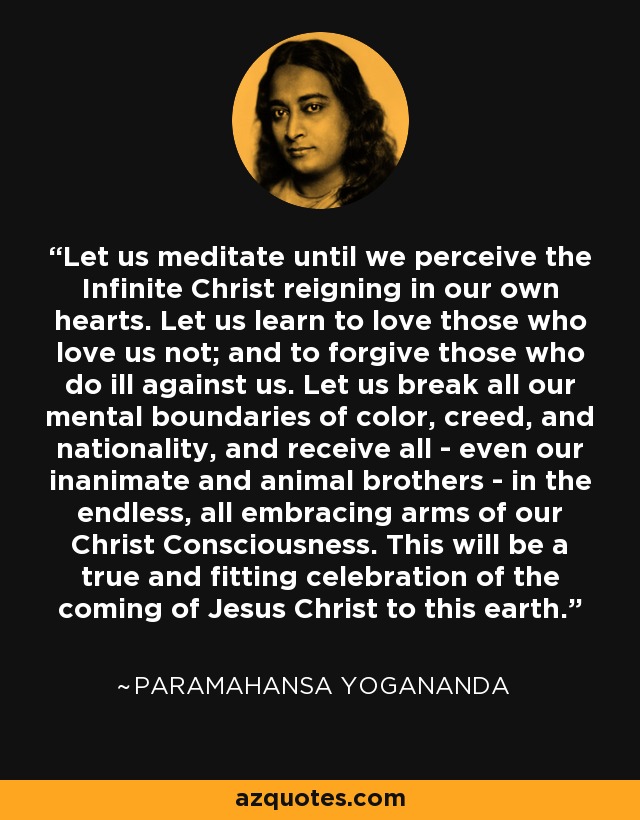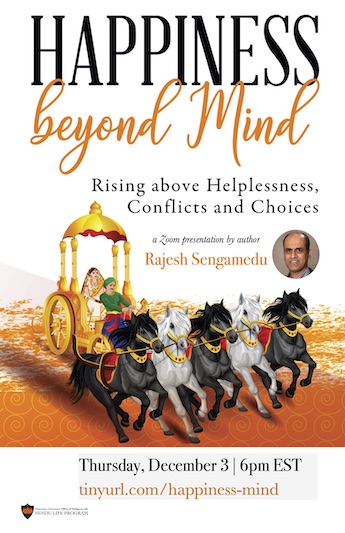In Sanskrit, the word for “grateful” is kritajna, which literally means “one who remembers the past deeds of another.”
My spiritual teacher once shared with me a wisdom lesson he had received, decades earlier, from a wandering monk in India. The Holy Man had told him: “If you wish to live in this world with a peaceful mind and a heart full of love, there are two things you must try to forget and two things you must strive to always remember.”
The first thing to try to forget: “The bad that has been done to you, try to forget that.” Let me clarify here. I don’t read the Holy Man’s advice to suggest that we allow ourselves to be mistreated or excuse inexcusable behavior. I don’t think he is asking us to forego processing our grief or hurt. We must do that in order to heal. But what happens once we are done processing? Are we willing to move into a space of letting go, and perhaps even forgiveness? Or are we still holding on to the hurt, nursing the wound, and even plotting revenge? I read “forgetting the bad done to us” as an act of compassion and self-compassion that allows us to let go and re-vision the challenging experience as something that came into our lives to teach us something. If we can do that, perhaps we can even feel grateful for it.
The Holy Man continued, “The good you have done for others, try to forget that.” Again, some commentary may be in order. Of course we should acknowledge and celebrate the good we do. But let us not fall into the trap of becoming so fixated on patting ourselves on the back that we eclipse the good deed or the recipients of that deed. When we commit a good deed and let it go to create ripples in the universe, we feel grateful to be instruments. When we make it all about receiving acknowledgment, accolades, or applause…when it is all about being seen or getting credit…we turn the act into an exercise in ego-bolstering and ‘keeping score’ instead.
What about the two things to always remember? The Holy Man instructed, “We must always try to remember the bad deeds we have committed to others.” Why hold on to the memories of our misdeeds or remind ourselves of how we’ve hurt others? Of course, beating ourselves up doesn’t do anyone any good. Still, we might take this as a call to own up to our past mistakes rather than to try to avoid them or gloss over them. Let us be cognizant of the ways we have fallen short, take responsibility for addressing what needs to be addressed, and keep those memories vivid as a way of guarding against repeating our mistakes.
And finally—“always remember the good that others have done for us.” No matter how small or seemingly insignificant, let us not take it for granted. If we are honest, everything we benefit from—from the food we eat and feed our families, to our jobs and finances, to our ability to live with safety and security, to the clothes on our back and the phones in our pockets—all of it is the result of the hard work and sacrifices of others. We are tiny parts of a larger circle of life. When we are grateful, we honor that circle, acknowledge the sacrifices of others, and step up to make sacrifice when we are called to do so. That is always true, but perhaps even more starkly clear in these days of the pandemic, when we cannot deny that we are recipients of gifts and beneficiaries of those on the frontlines.
Hindu scripture reminds us that Ishvara, the Supreme Lord, is infinitely grateful. He remembers our efforts, honoring even the smallest attempts and forgiving us our shortcomings or failings. When we choose to be grateful—to remember the deeds of others—we reflect his love for us, and act as his instruments to share that love with others.



